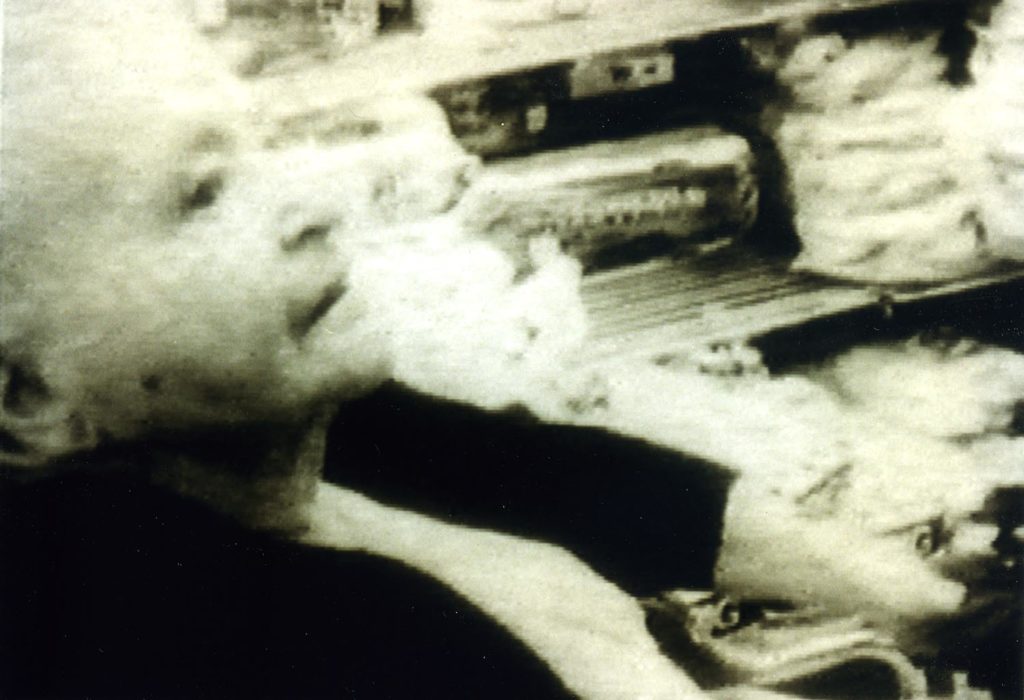Open City Documentary Festival Presents Grandma’s Grammar
April 25, 8:45pm
Institute of Contemporary Arts
London
Grandma’s Grammar traces the persistence of the figure of the grandmother as locus of feminist historicity in non-fiction film, considering the grandmother as cinematic medium and privileged subject for modelling alternative modes of storytelling, inter-generational genealogies, and archives of memory and lived experience. Drawing together works by Jean-Pierre Bekolo, Tânia Dinis, Katsuhiko Fukuda, Barbara Hammer, Utako Koguchi, Cecilia Mangini, Gunvor Nelson, Margaret Rorison, Chiemi Shimada, Emilija Škarnulytė, Khady & Mariama Sylla, Ana Elena Tejera and Naomi Uman, the grandmother comes into view as nexus and prism of cinematic possibility, sodality and solidarity, and an ethics of kinship within, and beyond, relation.
Grandma’s Grammar is curated by Elena Gorfinkel.
Elena Gorfinkel is a film historian and critic, and Reader in Film Studies at King’s College London.
GRANDMA’S GRAMMAR 1: PRISMATIC GENERATIONS
Red Shift
Gunvor Nelson / 1984 / Sweden / 50’ / 16mm / English and Swedish spoken, English subtitles
Oscillating between extreme proximity and distance, Red Shift is a film of domestic interiors, tactile details, and mutable intergenerational dynamics. Nelson, daughter Oona, and Oona’s grandmother, Carin Grundel, appear playing family roles. Two other actors represent a “past” of mother-daughter relations. They are tethered in a relay of extreme closeups and long shots: hands grasping and tending, creased flesh, polished silver, windowed views, resonant shards of time and memory, ritual and habit. Along with gnomic proverbs and snatches of banter, Edith Kramer is heard reading excerpts from over two decades of Calamity Jane’s late 19th century letters of regret to an estranged daughter. “The years have slipped by…” In a multivalent work of generational transmission, Jane’s lamentations yoke motherhood’s psychic freight to a vaster temporal horizon.
Optic Nerve
Barbara Hammer / 1985 / USA / 16’ / 16mm / sound
Barbara Hammer used filmic techniques associated with the baring of the apparatus towards materializing an embodied empathy. Hammer had to place her grandmother Anna – losing her sight and with a deteriorating illness – in a nursing home. Optic Nerve’s images, manipulated by optical step printing, repetition, and re-photography, dilate, arrest, and filter the moments Hammer spent with her grandmother in the rooms and halls of the care home, suffused by the tensions of memory and opacity, re-collection and disintegration. Making palpable their intersubjective bond, Hammer layers perceptual, corporeal, and psychic strata, conjuring her grandmother’s sensate experience and fading sight through a prismatic materiality.
The Sleeping Flower
Utako Koguchi / 1991 / Japan / 7’ / 16mm / Japanese spoken, English subtitles
The Sleeping Flower is a diaphanous film that balances Koguchi’s quotidian conversation with her grandmother about meals and routines, as she goes about the work of dailiness, with a hauntingly playful phantasmagorical funereal performance, a fictive burial. “Close your eyes grandma. Close your eyes please,” granddaughter requests. White paper flowers fall from above, burying grandmother in a snowy blanket of ethereal tissue, encased in a gauzy cocoon. “Am I dying?… I just wonder why I live so long.” The grandmother’s visage blooms open from slumber, eyes fluttering open.
With an introduction by Elena Gorfinkel.
Please see the festival’s Access page for more information regarding content warnings for this screening.
